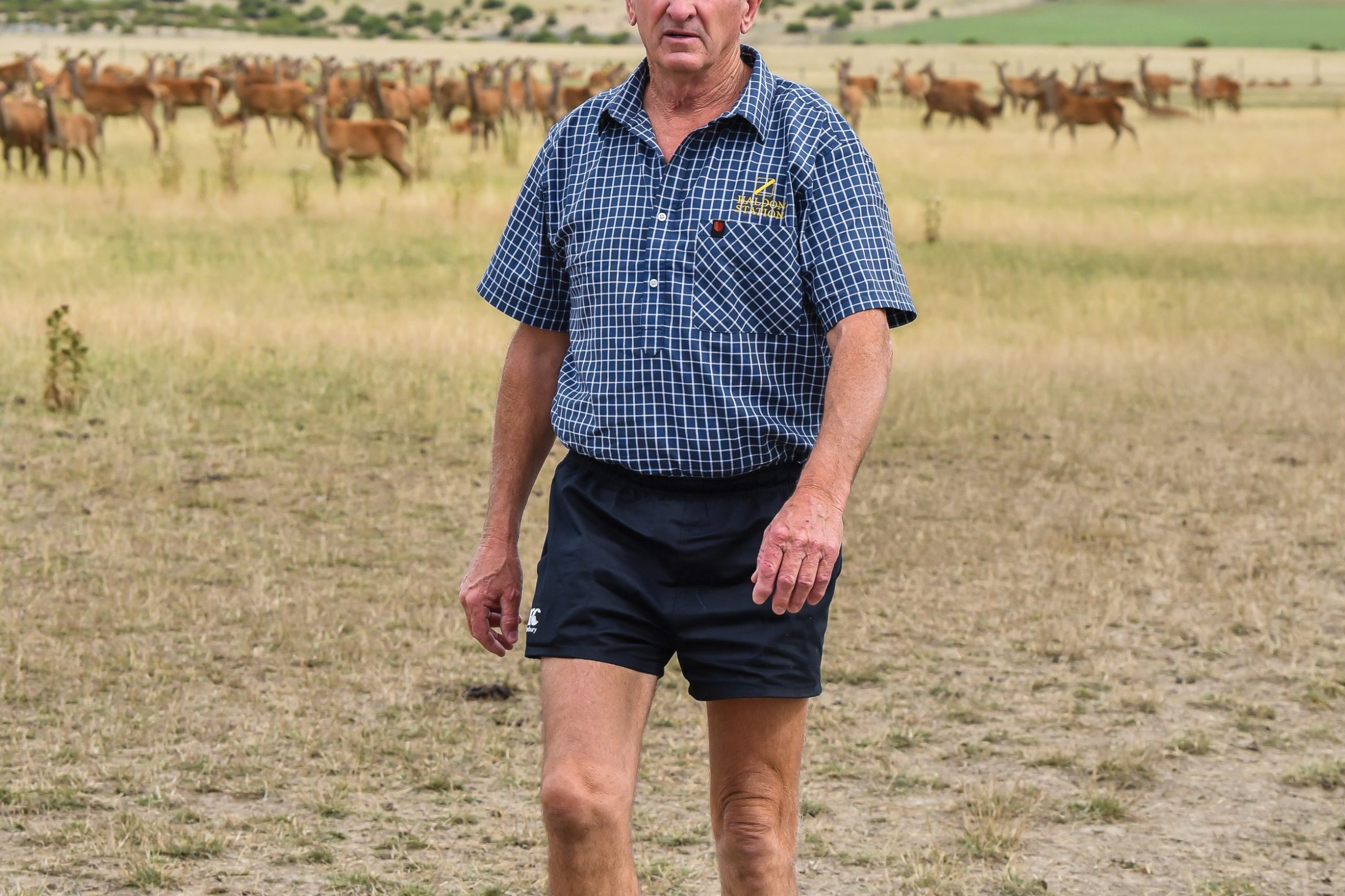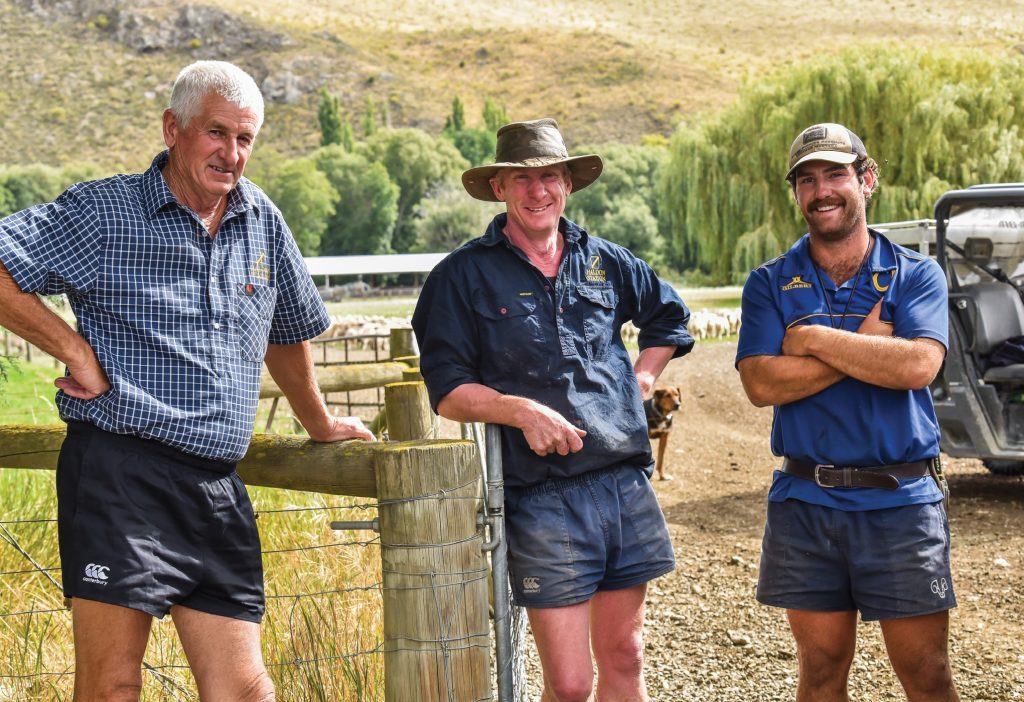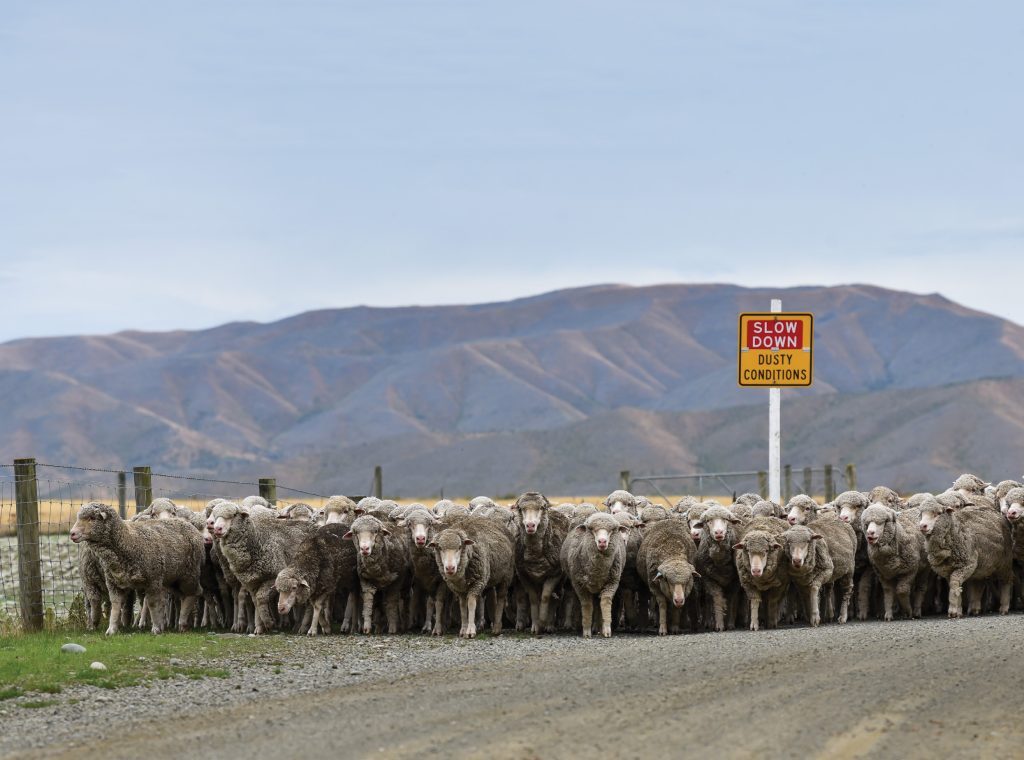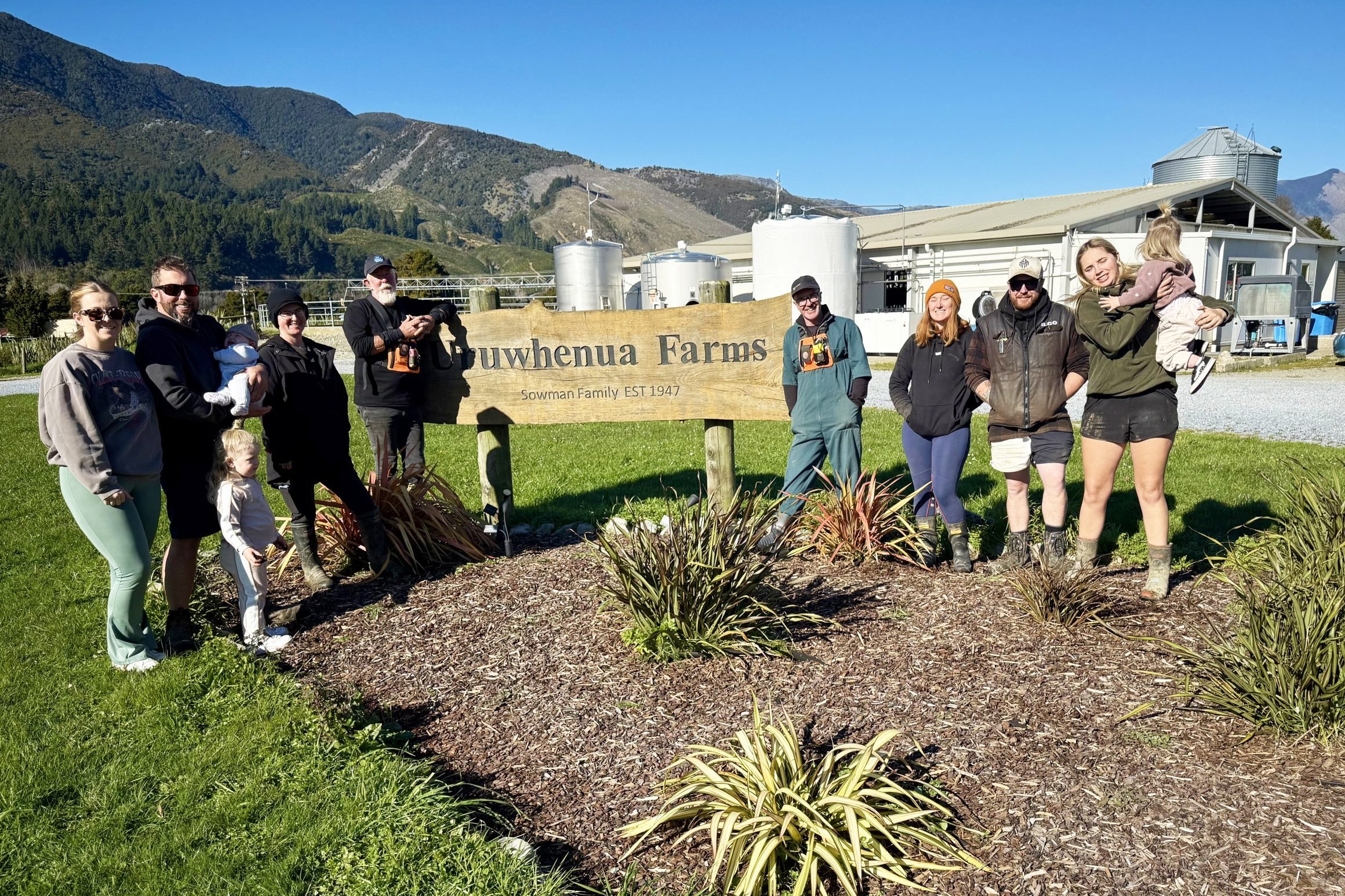The power of pencil and paper
In the third part of our large-scale farm manager series, Paddy Boyd has made a career out of managing the Mackenzie Basin’s Haldon Station and its people.
By Terry Brosnahan.
Photos by Chris Sullivan.

Under Paddy’s management the 22,000ha station has flourished.
So too have the people who have worked on Haldon. A number have gone on to be managers in their own right.
Watching staff develop and achieve gives Paddy immense satisfaction. They arrive with different skill levels so he lets them develop, but most can’t stay.
He says Haldon has three to four shepherd positions but only one at the next level so they need to move on to climb up the ladder.
He says at the age of 17 or 18 they need to move on to other places to gain experience and progress. By their late 20s, early 30s and after about three farms, they will then know if they have what it takes to be a leader. Some have returned to Haldon as stock managers.

“It is a shame to see the good ones go,” Paddy says.
There are 10 staff including Paddy who is hands on.
“A 100%,” he says. His wife Barbara (Barb) says 200%.
Paddy (67) is out the door at day-break, works seven days a week, averaging 10-hour days.
He “absolutely loves the challenge” of being a manager and did from day one.
“I would get bored without a challenge and this place is challenging.”
He says Haldon has 40C summers and -20C winters, “you can’t get more challenging than that.”
Irrigation has shortened the winters and made summer more enjoyable.

Getting the best from staff
Every Monday to Friday at 7.30am there is a staff meeting at the workshop to cover what’s happening, going to happen and what has to be done. It can take 10–30 minutes.
Monday morning is the longest. Paddy wants new stock manager Hamish Neal and development manager Grant Gardyne to plan their weeks. But he wants all the staff there so they all know what they are doing and can work as a team.
“I don’t want them working in silos.”
Staff are his biggest challenge. There used to be a waiting list of staff wanting to work at Haldon, but staff are harder to find and expectations of young staff are high. In the 1980s they were happy to have a job. Paddy says the staff now are good; some exceptional.
He employs people to fit into the job. Another shepherd is needed but not an experienced one because there are already three and a new one can learn from the other shepherds.
“When they come in they have got to enjoy what they are doing.”
The ones wanting to be shepherds want to learn how to work dogs. Paddy says the three shepherds have top dogs and Haldon will pay the vet bills on a dog injured at work.
Stock numbers
Under Paddy’s 36 years as manager, the 22,000ha station has developed stock numbers, top facilities and infrastructure. This year the station will winter 6800 deer, 6500 Merinos, 3000 Border Leicester-Merino cross ewes and 3000 hoggets, 1200 Hereford and Angus cattle including breeding cows, replacement heifers and younger stock.
With irrigation they can finish 5000 first cross lambs, 3000 fawns and 300 cattle.
Irrigation has changed the management of Haldon, which Paddy says he originally didn’t sign up for. Nine centre-pivots have gone in over the past 15 years.
One of Paddy’s management traits is to run the best set of accounts possible and watch expenses, but not be over frugal. All the development work on Haldon since he has been manager has been paid for out of income.
Barb has continued to help with the accounts until recently. She has been heavily involved in community work. They have two children: Hamish is an earth moving and fencing contractor, and Anna is the genetics operations specialist, beef, for Beef + Lamb New Zealand.
Paddy was born in Kaikoura and raised on a small farm. He worked on stations including Clarence Reserve as a shepherd. He managed a Kaikoura farm called Stone Jug for six years and had developed it as far as he could with the finances available.
He applied for a manager’s job on a farm in the Hunter Hills, South Canterbury, but wasn’t allowed to look at the farm or house. So Barbara and Paddy went to work at Haldon for owner James Innes in 1982.
During his time managing Stone Jug he used to buy wethers at the Tekapo sale to run on a hill run in the Clarence Reserve. It was similar to the Mackenzie Basin.
At Haldon Paddy was made stock manager and in charge of putting together the database for Genepool Herefords. Haldon was the base for Genepool and other farms’ cattle joined, so there were up to 30,000 animals recorded. Today it is just the Haldon animals. Paddy considers himself lucky to have come to Haldon. He says James was a blue sky thinker, an entrepreneur but also a gambler.
“He never looked back and never doubted himself.”
James allowed Paddy to think differently and learn, and he had to learn fast to keep with James. Paddy never went to Lincoln College and claims to be the “dumbest bugger” at school.
James was into wild deer capture in the 1980s and built up to six helicopters. Paddy drove the truck picking up the deer at Haast and Hokitika driving a 19-hour circuit. The truck could hold up to 27 deer that would need to be drenched once back at Haldon. Then the phone would go and Paddy would be off on another run. In the end they employed a driver.
Paddy would fly with James in his plane to bring deer home. Once a hind became untied mid-flight and got out of its body bag to be standing, staring at the pair. Paddy wrestled it to the floor of the plane until they got home.
“We had some really hairy trips.”
They worked well together. James would come up with an idea, get it going but couldn’t stick with it. He’d move on to the next one. Paddy developed James’ ideas, kept the ones that worked and dropped those that didn’t.
Prior to Haldon Paddy had wanted to own a farm, but at the station he realised he would never have the finance and scale like Haldon.
An opportunity
When James left Haldon in 1985 and moved to the United States he left Paddy in charge. By then he was virtually running Haldon anyway, as James was often away. But Paddy had no financial control.
“Probably because James was so hooked up with the banks.”
In 1987 Paddy was offered the manager’s position at Mt Linton, though Barbara was refusing to go.
The same year James was made bankrupt. His move to the US, love of helicopters and the Lange government’s change to the standard values for deer had become too much. Twenty-one years later in 2008, James died in a helicopter crash with his youngest son Andrew.
Haldon’s receiver, Laurie Chilcott, took over the station to make it profitable and more attractive to sell. He and Paddy worked well together.
Paddy says Laurie told him that he ran the best set of books for budgeting of anyone he knew. It was a habit Paddy developed while working with James, to do a budget and hit it.
“I watch expenses excessively and the income just sorts itself out,” he says.
Paddy says it doesn’t mean being too frugal, there is a need to spend as long as the expense is justified. He never worries about the income because it’s something he can’t control. He keeps costs under control but develops all the time. Even when income is high he will still watch the expenses closely.
Johan (Han) and Jenny (Jenn) Klisser sold their Vogels bread factory in 1990 and bought Haldon in 1991. They were good owners but knew nothing about farming. They brought in a farm adviser who advised they go all silage, but Haldon goes down to -20C and it froze in the pit. They couldn’t get the silage out and stock died.
Han watched the pennies and around the board table were the Klissers, a lawyer, an accountant and Paddy. But if Paddy wanted to do something and it made sense, Han would let him do it, as long as it had been costed out.
After several years he trusted Paddy completely.
“We’ve had a great working relationship ever since.”
Han let Paddy have a go at what he wanted to do.
“Han and Jenn Klisser have been brilliant farm owners.”
Paddy says they were firm in the belief they didn’t own the land but were custodians. “Han often said we must leave the land in a much better state than when we took it over.”
Paddy says the Klissers have been good custodians. Right from the outset they didn’t want to take money off Haldon but rather reinvest it in the station. They wanted Haldon to be a top-ranked farm.
When the Klissers took over, Paddy was told to write down in his diary, “The more you make, the more you can develop.”
Paddy is paid a base salary with a performance bonus.

New technology changes
The Klissers took Barb and Paddy overseas to see new technology, including centre-pivot irrigators, which Haldon had years before they took off in NZ. Haldon brought in genetics for artificial insemination, Merino and Hereford from Australia, deer semen from England.
The Klissers lived in Auckland but would come down for major happenings on the station.
Han died in November last year aged 95, but Jenny still comes down to Haldon though not so frequently. Haldon is held in a family trust.
Paddy has his own blue-sky ideas but will first do a cost analysis. If it looks like it will work and break even, they will run with it to see how it pans out.
Though he is computer literate and uses Cashmanager, Paddy still makes a pencil copy of everything. He carries a notebook. “I write notes all day long.”
Since the day he came to Haldon, Paddy has kept a diary of work events and goes back to look over them. They became his planner. Now there are farm assurance and environmental plans to fill out, but he still keeps a diary.
“I hate compliance but it’s a necessary evil.” Paddy predicts a lot of environmental hurdles ahead for farmers in the Mackenzie Basin and is up for the challenge. “It is imperative to have irrigation in some areas; it’s not made for everywhere.”
He says only 3% of the Mackenzie plain area is under irrigation. The 950ha on Haldon makes the station sustainable.
About 15 years ago, they spent $350,000 in one year buying in balage and hay. That’s why he pushed development and centre pivots to make the station more resilient to dry conditions.
Paddy works on a five-year plan. One to two years is too short, more than five too long.
He has systems in place and plans ahead – what has to happen and by when. He knows what he will be doing between now and Christmas. What ground needs to be renewed, what’s got consent and needs to be developed within two years.
He has no hobbies and only reads when not on the farm, maybe travelling on a plane for the likes of Deer Industry NZ business. When he and Barb do take a holiday, he will devour a Wilbur Smith-type book before arriving at the destination.
When I brought up the subject of retirement he whispered something about it not happening soon, so Barb wouldn’t hear. It will happen and succession has started.
New additions to the team are Hamish and Anna Neal who are part of the succession plan. Anna runs the office and Hamish is stock manager who will take over from Paddy.
Paddy and Barbara bought land near Pleasant Point 15 years ago, originally for security and it is here they will probably retire to.
Paddy never wanted to be a manager when he first came to Haldon.
“But it was so rewarding to try these things and make them work.”
His advice to anyone taking on a manager’s role is to make sure there is time to achieve their goals. Otherwise it might be better to look somewhere else.
- More on Haldon Station in County-Wide Beef, May issue.




